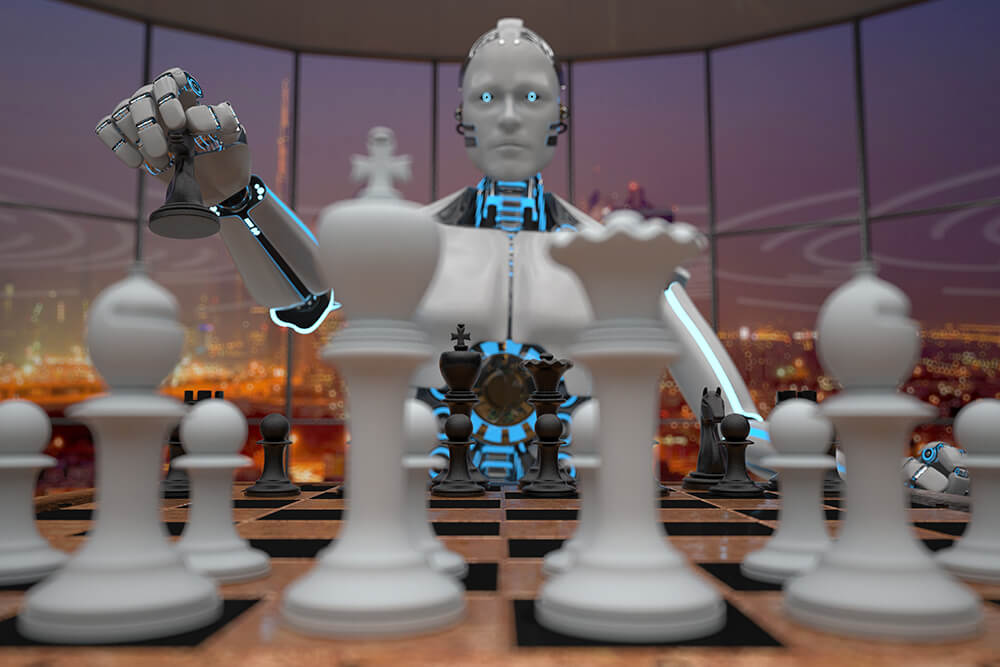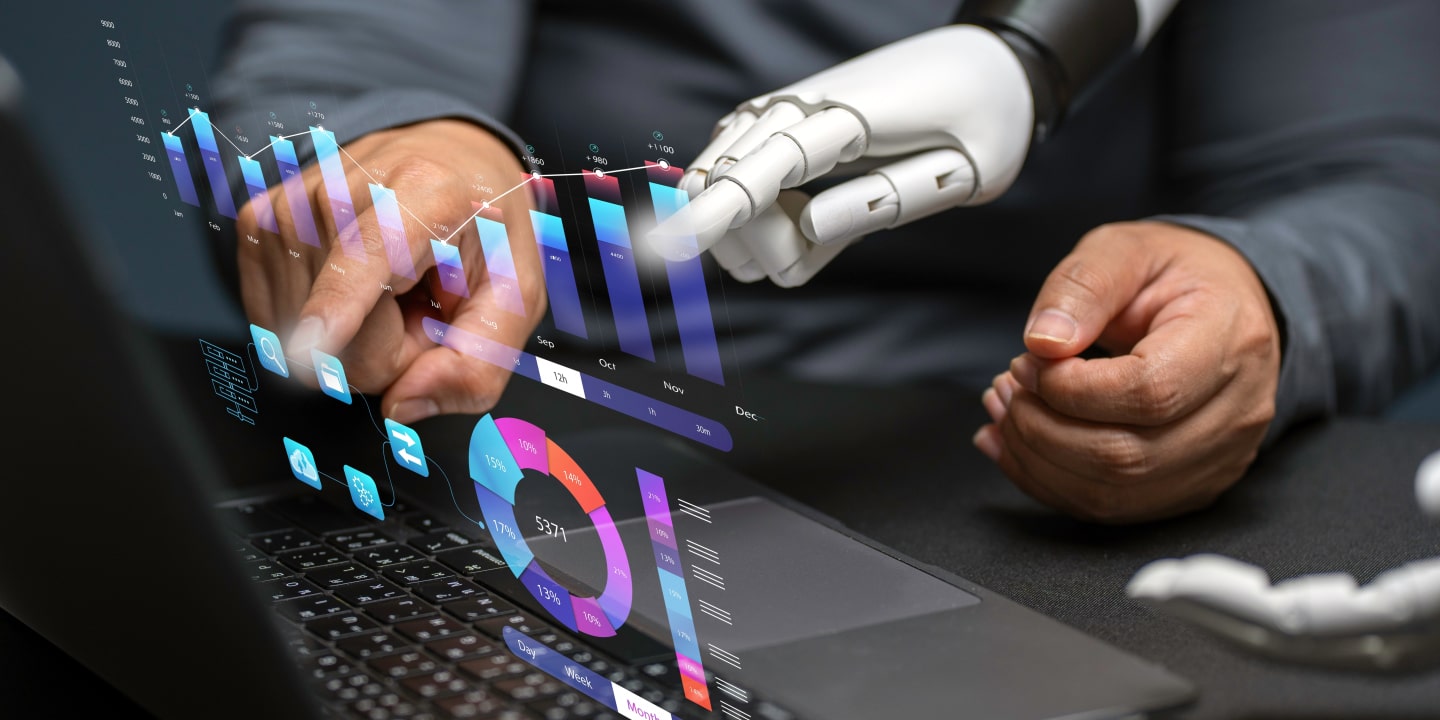In recent years, Artificial Intelligence (AI) has evolved from a tool to a transformative force in nearly every industry. Its abilities, once limited to simple tasks, are now pushing the boundaries of creativity, leadership, and decision-making. But the most fascinating—and perhaps unnerving—question remains: What if AI no longer merely assists us, but leads us?
This idea might seem like a far-off futuristic concept, but it’s a scenario that is becoming increasingly plausible as AI continues to advance in capabilities. From managing complex tasks to analyzing data, AI is already in roles that were once the exclusive domain of human experts. But can AI, with its precise algorithms and impartial nature, truly take on the responsibilities of a leader? In this article, we’ll explore the concept of AI as a boss, the potential benefits and drawbacks, and how it might reshape the modern workplace.
The Evolution of AI: From Assistant to Boss
The idea of AI as a leader isn’t as far-fetched as it sounds. Today, AI systems are already capable of managing processes like scheduling, customer service, and even product recommendations. Think of virtual assistants like Siri or Alexa—simple and effective, but only scratching the surface. As AI technology becomes more advanced, the scope of its abilities expands beyond routine tasks into complex decision-making and even management of people.
At the core of this evolution is machine learning, which enables AI systems to learn from data, adapt, and improve over time. With enough data, an AI can understand intricate patterns and make decisions that are grounded in logic and efficiency. This level of sophistication could allow AI to not just manage day-to-day operations, but also lead teams, evaluate performance, and make strategic business decisions.
AI as a Manager: A New Kind of Leadership
When we think of a traditional boss, we imagine someone who manages people, resolves conflicts, sets goals, and makes tough decisions. These are all aspects of leadership that could theoretically be handled by AI. In fact, many businesses already use AI to assist with tasks like:
- Performance Monitoring: AI algorithms can analyze employee performance based on set metrics, providing real-time feedback. For instance, AI could track how well an employee is meeting sales targets, completing tasks, or engaging with customers.
- Decision-Making: AI could help managers make data-driven decisions, identifying trends and predicting future outcomes. Whether it’s choosing the right marketing strategy or allocating resources, AI can provide objective, well-reasoned advice.
- Conflict Resolution: AI could also help mediate workplace disputes. By analyzing communication patterns and behavioral data, AI might detect underlying issues before they escalate, suggesting solutions that are based on logic and fairness.
- Task Delegation: With access to a database of skills, preferences, and work schedules, an AI could assign tasks based on employee strengths and availability. This could help optimize team efficiency.
Could an AI make a better boss than a human? In theory, yes. AI doesn’t suffer from emotional biases, fatigue, or personal preferences that can cloud judgment. It would evaluate performance based on measurable, objective data, which could lead to fairer and more efficient decision-making.

Benefits of Having AI as a Boss
- Efficiency and Precision
AI excels at processing vast amounts of data quickly. With this capability, it could optimize business processes, analyze market trends in real-time, and ensure tasks are completed with maximum efficiency. An AI boss would never waste time, never get distracted, and always ensure the right person is working on the right task at the right time.
- Objectivity and Fairness
One of the main criticisms of human leadership is bias—whether it’s unconscious favoritism, ageism, gender bias, or other forms of discrimination. AI, however, would base decisions solely on data. It could evaluate employees purely on their performance and potential, creating a more equitable work environment.
- Improved Decision Making
AI’s ability to analyze massive datasets and forecast potential outcomes could lead to more informed decision-making. For instance, AI could help predict how changes in a company’s operations might impact revenue or customer satisfaction, providing managers with a clearer picture of the future.
- Adaptability
AI can rapidly learn and adapt. If a company faces an unexpected market shift, AI could adjust its strategies in real-time, ensuring the business remains agile and competitive. In contrast, human leaders may take longer to adapt due to their reliance on past experiences.
The Potential Drawbacks of AI Bosses
While the idea of an AI boss comes with a plethora of benefits, it also raises several concerns that should not be overlooked.
- Lack of Empathy
Perhaps the most significant limitation of AI as a boss is its inability to understand and manage human emotions. While AI can analyze data about employee performance, it can’t grasp the nuanced emotional needs of a team member. Employees often seek empathy from their managers in times of personal struggle, and an AI might not be able to provide that support.
- Accountability Issues
When a decision goes wrong, who is responsible? With AI at the helm, it might be difficult to pinpoint who is accountable for a poor decision. Is it the creators of the AI system, the AI itself, or the people who implemented its suggestions? This lack of clear accountability could complicate legal and ethical issues in the workplace.
- Loss of Human Connection

In workplaces, personal relationships often matter. A human boss can motivate, inspire, and mentor employees in ways that an algorithm never could. An AI might be efficient, but it can’t offer the kind of personal growth or emotional support that many employees seek from their leaders.
- Job Displacement
The rise of AI as a boss could also lead to job displacement. While AI may streamline operations and improve efficiency, it could also reduce the need for human managers. This could create a shift in the labor market, where traditional managerial roles are replaced by algorithms and software.
How to Prepare for an AI-Driven Future
Given the potential for AI to become a dominant force in leadership, it’s crucial for both employees and organizations to prepare for this transition. Here are a few steps that could help ease the integration of AI in leadership roles:
- Embrace Technology Early
Organizations should begin experimenting with AI tools that enhance productivity and decision-making. By integrating AI into existing processes, businesses can get comfortable with how the technology works and identify areas where it can add value.
- Focus on Emotional Intelligence
While AI may excel at data-driven tasks, it cannot replace the human touch. Leaders of the future will need to focus on developing emotional intelligence (EQ)—the ability to understand, interpret, and manage emotions—in order to complement the more technical aspects of AI.
- Upskill the Workforce
As AI takes on more leadership responsibilities, human workers will need to adapt. Emphasizing continuous learning and upskilling will ensure that employees stay relevant in a world where technology is increasingly intertwined with leadership.
- Ethical Considerations
Developing AI in leadership roles raises significant ethical questions. How can we ensure that AI remains transparent and accountable? How do we protect workers from potential biases embedded in AI systems? These are important questions that will need to be addressed as AI becomes more integrated into leadership.
The Road Ahead: A Hybrid Approach?
Rather than replacing human bosses entirely, the future of leadership might be more of a hybrid model. AI could assist human leaders, offering data-driven insights and operational efficiencies, while human leaders continue to provide emotional support, mentorship, and decision-making grounded in human experience. In this scenario, AI doesn’t replace the boss—it augments their ability to lead.
In such a hybrid approach, the role of the boss might shift from being the sole decision-maker to being a facilitator who interprets AI insights and applies them in a human context. This fusion of human intelligence and artificial intelligence could be the key to a future where the strengths of both are maximized.
Conclusion: A Brave New World of Leadership
The prospect of AI becoming the boss instead of merely the assistant is an exciting yet daunting one. While AI could bring efficiency, fairness, and adaptability to leadership, it also poses significant challenges in terms of emotional intelligence, accountability, and the human connection at work. The key lies in finding the right balance—where AI enhances, rather than replaces, human leadership.
As we move forward, it will be essential for companies, employees, and policymakers to navigate these changes thoughtfully. The future of work may involve a partnership between humans and AI, one where we leverage the strengths of both to create workplaces that are more efficient, equitable, and innovative than ever before.











































Discussion about this post